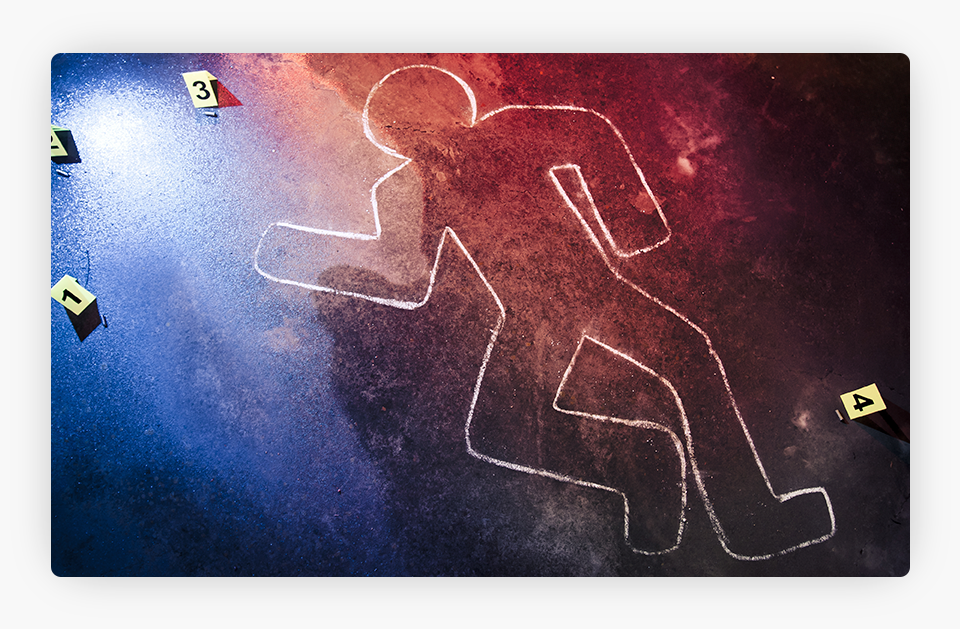We can’t send you updates from Justia Onward without your email.
Unsubscribe at any time.
Police, prosecutors, and the rest of the criminal justice system can intimidate anyone. However, knowing the law and your rights can ease some of the stress. Justia offers a free resource on criminal laws and procedures for a general audience.
Finding out that you’re suspected of a crime can be unnerving. Someone in this situation may have many questions about the law and their rights. The Criminal Law Center in the Justia Legal Guides describes commonly charged crimes and potential defenses. It also discusses procedural features of the criminal justice system, including constitutional protections for suspects and defendants. Here are some questions to which it provides basic answers.
Will a Defendant Get Out of Jail Before Trial?
In deciding whether a defendant should get out of jail, a judge will consider whether the defendant is likely to flee or pose a threat to public safety. If the judge allows for release, they usually will set an amount called bail that the defendant must post as a guarantee of returning for trial. Often, a defendant will use a bail bond company to post the money on their behalf in exchange for a fee. In some cases, though, a judge will grant release on own recognizance to a defendant. This means that they can stay out of jail prior to trial without posting any money, although they may need to meet other requirements.
What Does a Plea Bargain Look Like?
A plea bargain usually involves pleading guilty in exchange for reduced consequences. For example, the prosecutor might drop another charge, reduce the level of a charge, or recommend a lower sentence. Sometimes the prosecutor might agree to refrain from pursuing a sentencing enhancement that the facts of the case might support. A judge must review a plea bargain before it takes effect. They must verify that the plea is knowing and intelligent by questioning the defendant before accepting it.
When Can I Argue Self-Defense?
Self-defense is essentially an argument that the defendant was justified in using force. It usually requires showing that they reasonably feared imminent harm. The defendant also must have used force proportionate to the threat of harm. For example, you generally cannot use deadly force in response to a non-deadly threat. The law traditionally required a defendant to retreat before using deadly force, but most states have adopted a stand your ground rule that allows the use of deadly force without retreating if the defendant had a right to be in the place where the incident occurred. Justia provides a 50-state survey on stand your ground laws.

What Are the Rules for a Stop and Frisk?
If an officer has a reasonable suspicion that a person is armed and dangerous, they can stop them and conduct a “frisk,” or a patdown. This involves only the outer clothing of the person. An officer can seize a weapon, something that feels like a weapon, or something that is obviously illegal during the frisk. Any of these items may be introduced as evidence in an eventual prosecution against the person.
How Does Double Jeopardy Work?
Double jeopardy prevents a person from being prosecuted twice for the same crime, as well as receiving multiple punishments for the same crime. It comes from the Fifth Amendment to the Constitution. However, it does not prevent federal and state prosecutions, or prosecutions in multiple states, for the same conduct. It also does not prevent a defendant from facing both criminal and administrative penalties, or both criminal penalties and civil liability. The rule takes effect when the jury is sworn in, or when the first witness is sworn in if a jury is not used.
What Is the Statute of Limitations in a Criminal Case?
The statute of limitations in a criminal case describes the time in which a prosecutor can bring a charge against a suspect. Missing this deadline likely will block the case, even if the prosecutor has strong evidence. The length of the limitations period depends on the charge, although many states have a general rule for most felonies and another general rule for most misdemeanors. Some serious crimes have no statute of limitations, which means that the prosecutor can bring these charges at any time.
Do the Police Always Need a Warrant to Search?
No, the police can conduct a search without a warrant in certain situations. One of the most common exceptions is when a person with authority over the property at issue consents to a search. The police also may conduct a search when they arrest a suspect, or when they believe that a suspect will destroy evidence if a search is not promptly conducted. Another exception applies to open areas of a property not adjacent to a residence. These are just some examples of when the police might not need a warrant.

What Is the Difference Between First-Degree and Second-Degree Murder?
First-degree and second-degree murder are both serious forms of homicide that carry harsh penalties. However, first-degree murder generally involves some form of premeditation, which means that the defendant had time to reflect before killing the victim. Second-degree murder generally involves killing with intent but without premeditation, although sometimes extreme recklessness may support this charge. Either type of charge also may arise under the felony murder rule, which may apply in certain situations when a death occurs during a felony.
What Is the Difference Between Assault and Battery?
Assault and battery are often seen as a single crime. However, assault traditionally involved putting someone in fear of imminent harm, while battery traditionally involved harmful or offensive contact. Battery thus could be considered the next step after assault. However, some states have abandoned this formal distinction and now use “assault” to describe crimes involving physical contact as well. Assault or battery in certain situations, such as domestic violence or child abuse, may trigger separate laws and penalties.
How Does Probation Work?
Sometimes a judge will grant probation to a defendant instead of sentencing them to serve time in prison. This means that they can continue living in the community if they comply with conditions imposed by the court. Conditions vary depending on the type of crime, but a defendant might need to perform community service, complete alcohol or drug treatment and undergo testing, keep a job, or pay restitution to a victim. A probation officer will oversee the defendant’s progress and report any violations. A judge could sentence a defendant to imprisonment if they violate the conditions of probation.
Final Thoughts
Any criminal case has high stakes. A conviction could affect your life far into the future. If you think that you may be suspected of a crime, you should contact a criminal lawyer for guidance specific to your situation. In the meantime, the Criminal Law Center offers a readable overview of some key concepts in this area. Like the other Justia Legal Guides, it furthers our mission of making the law free and accessible to all.
Related Posts